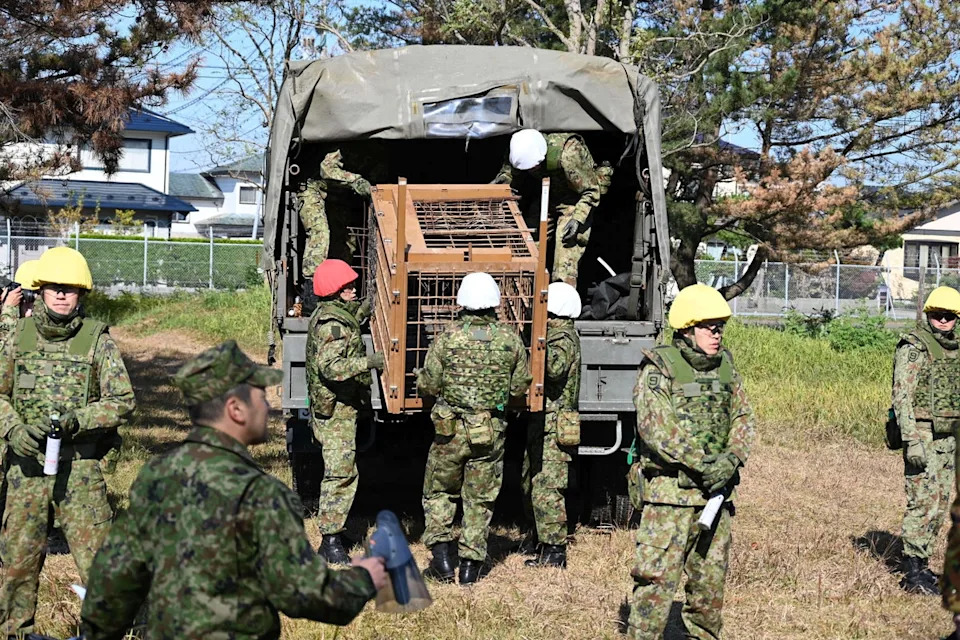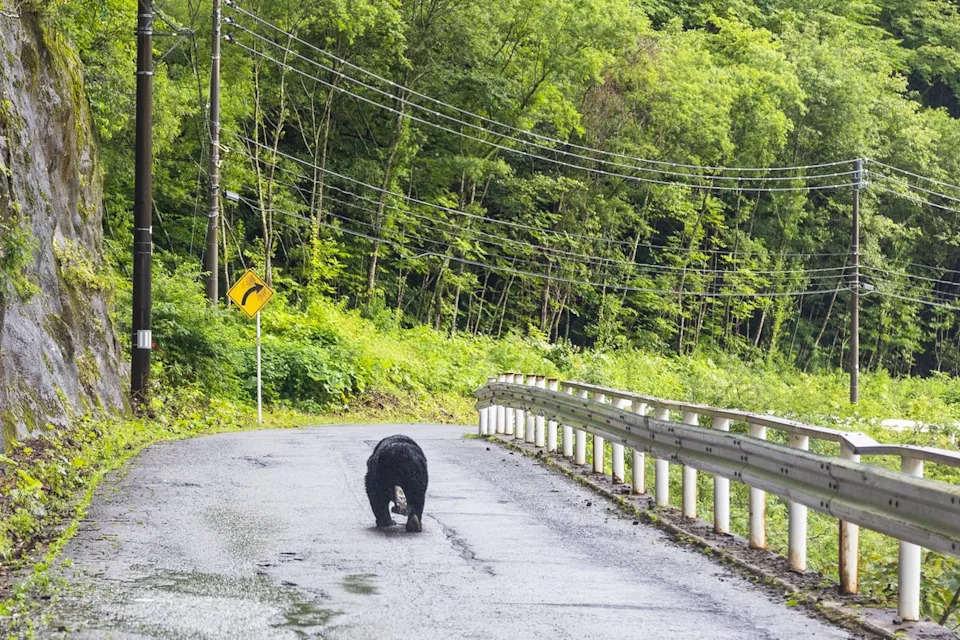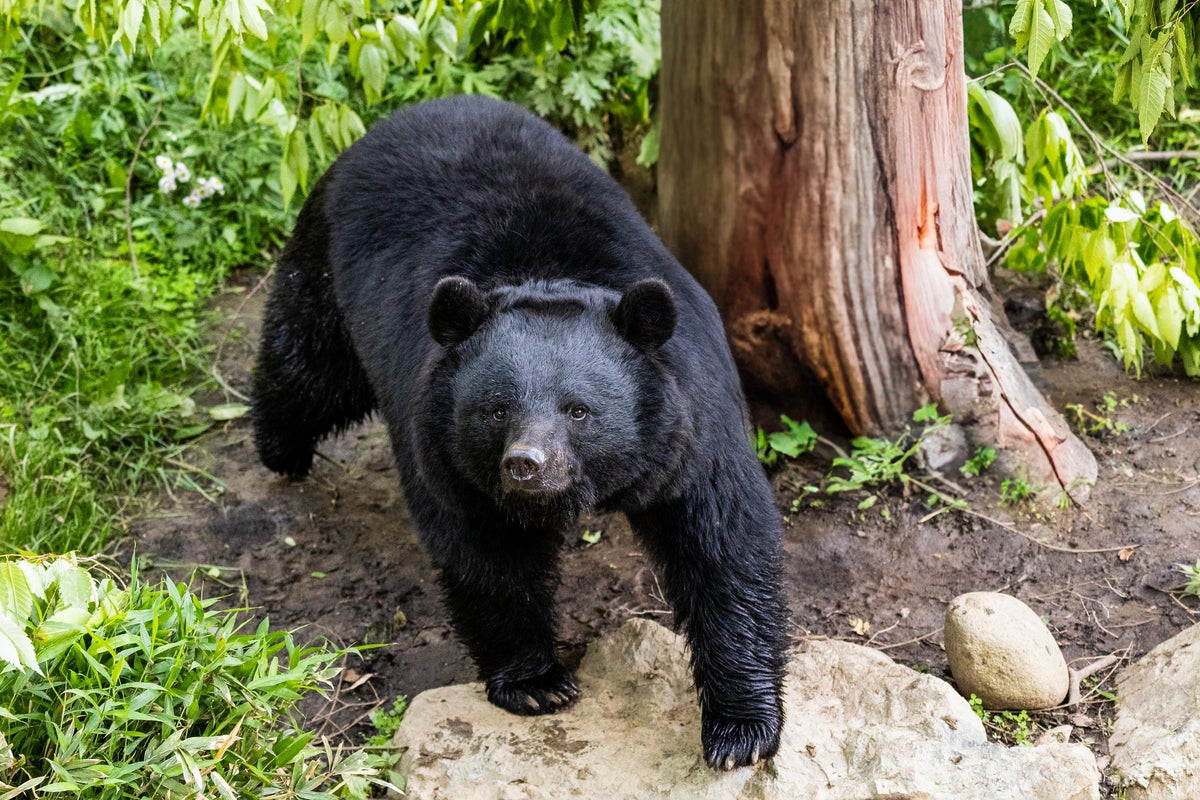A man in his 50s has been hospitalised after a bear attack in Japan’s Fukushima prefecture, the latest in a growing string of encounters that have triggered panic in the country.
Local police said the man was slashed on the back of his head while walking in the town of Aizubange on Thursday evening. He managed to escape into a nearby house and was taken to hospital with non-life-threatening injuries.
Another resident in his 80s was attacked in the same neighbourhood earlier this week.
Authorities have stepped up patrols and urged residents to stay alert, as bear sightings and attacks rise sharply across northern Japan.
At least 100 people have been attacked by bears since April, marking one of the worst years on record. Fatal maulings have reached a record high, with the latest deaths pushing the nationwide toll to 13.

Japan Self-Defense Forces unload a bear cage at Akita Camp (JSDF Akita Camp via AP)
Two-thirds of this year’s fatalities have occurred in Akita and Iwate prefectures, where Japan’s military was deployed this week to help set and inspect traps following an urgent request from local governments overwhelmed by incidents.
In Akita prefecture, residents say the animals are venturing closer to homes and shops in depopulated rural areas, drawn by dwindling food sources before winter hibernation.
Japanese confectioner Keiji Minatoya, who was attacked by a bear in 2023, told Reuters news agency that he thinks authorities must be ruthless with bears that no longer fear human settlements.
“Bears that attack have learned that humans are weak,” Mr Minatoya said.
“We locked eyes in silence,” he said, staring into the outbuilding beside his shop in rural Kitaakita in northern Japan where he had unwittingly trapped the apex predator. “I thought I was done for.”
The bear pinned him down and mauled him, leaving deep gashes across his face, bite marks along his arm and torso, and nearly scalping him before running off. Emergency services airlifted Minatoya 60km (37 miles) to Akita city to save his life.
The mauling in 2023 is more than a horrific memory for Minatoya. He and his neighbours, most of them elderly, continue to live on the frontline of a growing wave of bear attacks.
Forestry officers say overgrown gardens and abandoned houses have given bears more places to hide and forage.
“Overgrown yards around empty houses make people uneasy,” forestry official Kimitoshi Kishino told Reuters, adding that local authorities struggle to clear private properties without owners’ consent.

A black bear walking along a rural mountain road in Shizukuishi, Iwate (Getty/iStock)
Bear sightings in Akita have jumped more than sixfold this year to over 8,000, according to government data. Experts say the population of Asiatic black bears, listed globally as a vulnerable species, has tripled since 2012, helped by restrictions on hunting and warmer winters that extend foraging seasons.
The animals are also venturing into bustling cities, with sightings around Kyoto and Tokyo on the rise.
Japan’s Environment Ministry said it was reviewing measures to manage bear populations and urged people in high-risk areas to harvest fruit trees, avoid leaving food waste outdoors and carry bells or noisemakers when walking near forests.

